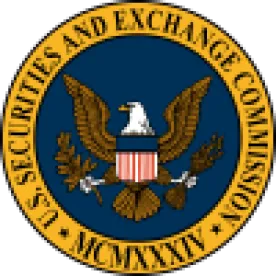Congress opened 2021 by overturning one of President Trump’s vetoes for the first time. By large bipartisan majorities, the House and Senate overturned a presidential veto and enacted the 2021 National Defense Authorization Act (“NDAA”).1 Tucked away in the $740.5 billion defense bill were provisions granting the U.S. Securities and Exchange Commission (“SEC”) statutory authority to seek disgorgement in federal court and providing a 10-year statute of limitations for that remedy.2
Congress’s actions were in response to two landmark Supreme Court decisions that curtailed the SEC’s disgorgement powers—Kokesh v. SEC3 and Liu v. SEC4. As we detailed previously, Kokesh limited the SEC’s ability to obtain disgorgement in cases of long-running frauds, as the Supreme Court held that disgorgement was a “penalty” and thus subject to the five-year statute of limitations for penalties found in 28 U.S.C. § 2462. In Liu, the Court answered the question of whether the SEC could obtain disgorgement awards in federal court at all, which was previously unresolved as the SEC’s authorizing statutes only provided for disgorgement in administrative proceedings but were silent on disgorgement in federal court. The Court held that federal courts could continue to award the SEC disgorgement, subject to certain limiting principles.5
The 2021 NDAA addresses limitations placed on the SEC’s ability to obtain disgorgement in both cases:
-
First, the law grants the SEC express statutory authority to seek disgorgement in federal court actions. Specifically, Section 6501 of the NDAA grants the SEC the authority to seek, and the federal district courts jurisdiction to “require disgorgement .. . of any unjust enrichment by the person who received such unjust enrichment as a result of” a violation of the federal securities laws.
-
Second, the law establishes a ten-year statute of limitations—up from the five-year limitations period set by Kokesh—for securities violations that involve an element of scienter, e., knowledge of wrongdoing. Specifically, Section 6501 provides a ten-year statute of limitations for violations of: (1) Section 10(b) of the Exchange Act6; (2) Section 17(a)(1) of the Securities Act7; (3) Section 206(1) of the Investment Advisers Act8; or (4) “any other provision of the securities laws for which scienter must be established.”
While the statue provides the SEC with the express authority to seek disgorgement in federal court actions, the extent of its impact remains to be seen. These new amendments do not purport to define to what extent or in what amount disgorgement may be awarded. Notably, the law does not address any of the limiting principles laid out by the Supreme Court in Liu. As we previously detailed, those principles have already impacted federal court decisions regarding appropriate disgorgement amounts to be awarded to the SEC, and it will largely be up to the courts to see whether, or how, they implement these equitable limitations going forward. What seems clear, however, is that Congress’s actions give the SEC the footing it needs to continue pursuing aggressive disgorgement awards in federal court, extending its reach to conduct as far back as a decade in time. The impact will be most acutely felt in cases of long-running, intentional frauds, which may have gone unaddressed under the previous five-year statute of limitations.
1 H.R. 6395.
2 President Trump’s veto was unrelated to these provisions; it is reported that he objected to the annual bill because it failed to place limits on social media companies and allowed the renaming of military bases named after Confederate leaders. See AP News, Trump vetoes defense bill, setting up possible override vote, https://apnews.com/article/donald-trump-politics-defense-policy-bills-babbd8bbce66db1b1b28b0f4f3cb3f13 (Dec. 23, 2020).
3 581 U.S. ___; 137 S. Ct. 1635 (2017).
4 591 U.S. ___ (June 22, 2020).
5 Specifically, Liu limited federal court disgorgement awards in three material ways: (1) by indicating that disgorged funds typically should be disbursed to harmed victims; however, the Court left open whether returning funds to the U.S. Treasury could be considered to the benefit of victims; (2) by casting doubt on whether joint-and-several liability may be imposed for disgorgement awards; however, as the defendants in Liu were a married couple, the Court left it to the lower courts to determine whether joint liability should be imposed; and (3) by holding that disgorgement awards should be limited to “net” profits, i.e., profits after deducting legitimate business expenses.
6 15 U.S.C. § 78j(b).
7 15 U.S.C. § 77q(a)(1).
8 15 U.S.C. § 80b-6(1).







 />i
/>i
